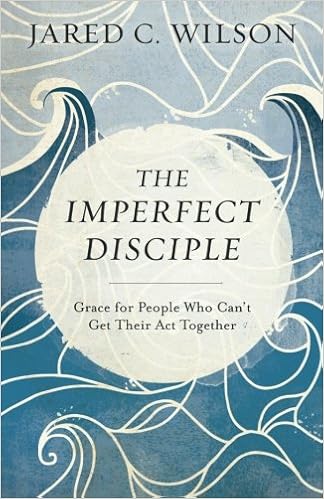I waited for the release of As Kingfishers Catch Fire: A Conversation on the Ways of God Formed by the Words of God (Waterbrook, 2017) by Eugene Peterson for many months, yet when I received it, I was reluctant to begin. There is a certain desire to savor what may be one of the final books by a favorite author. Yet ultimately, it does no good to look at a meal with admiration; one must eat. And Kingfishers is a satisfying meal.
I knew little about the book when I pre-ordered it in November. When it arrived, I was pleasantly surprised at its length, 372 pages. In the opening letter to the reader, I was also surprised to discover that the book was a collection of 49 teachings from Peterson's 29 years as a pastor. The editorial team wrote, "Throughout this definitive collection of teachings, Peterson is intentional in keeping the main idea the main idea: that we, as Christians, live lives of congruence. Put another way, that the inside matches the outside. Or as we used to hear, that we indeed practice what we preach." Congruence is a good descriptor.
The 49 sermons were broken into seven parts. Each part contained seven sermons centered around the writings of Moses, David, Isaiah, Solomon (save one about Job), Peter, Paul, and John. The sermons cover the ground between Genesis 1 and the end of John's Revelation.
Through his books, Peterson has reinforced several themes for me: the importance of prayer, the sacredness of the ordinary, and the the beauty of the Word, expressed through words. Each of these themes found their way into the pages of Kingfishers.
Although I love words, I fail to capture meaning and beauty the way Peterson so consistently does. My hope is that sharing a few of his words whets your appetite for more.
- Regarding the Sabbath--"One day a week stop what you are doing and pay attention to what God has been and is doing" (page 13).
- "We are always drifting off into the impersonal. It is easier and less demanding. But it is also demeaning and estranging. Always and everywhere in Scripture our attention is brought back to the central fact: God is a person; God makes persons; God remakes persons. A person like me" (p. 25).
- "We live in a culture that knows little or nothing of a life that listens and waits, a life that attends and adores" (p. 77).
- From my favorite chapter, The Beauty of Holiness, "Beauty is the outside and holiness is the inside of what is essentially the same thing: life full and vibrant, life God created and God blessed, life here and now" (p. 78).
- "We read and live at different speeds" (p. 158).
- "A critical question every Christian has to deal with is 'How can I best assist others to a full, mature growth in the Christian way?'" (p. 189).
- "International diplomacy takes time and careful listening. Parenting takes time and careful listening. Friendship takes time and careful listening. And Scripture takes time and careful listening" (p. 236).
- "You think religion is a matter of knowing things and doing things. It is not. It is a matter of letting God do something for you: letting Him love you, letting Him save you, letting Him bless you, letting Him command you. Your part is to look and believe, to pray and obey" (p. 291).
- "I want to know that the nitty-gritty of my life is taken seriously by the gospel, not just the state of my soul. I don't want a religion of neat little slogans about sunsets and heartthrobs. I want something practical that gets into the working parts of my life" (p. 303).
- "If Jesus makes it into our daily behavior, observers will begin to think there might be something to this after all" (p. 307).
- "In Christ we see the putting to death of self, the killing of self-centeredness, the crucifixion of the ego" (p. 310).


